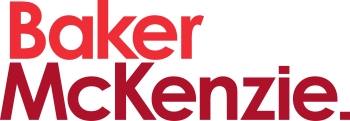In the world of sport, conflicts are resolved before the Court of Arbitration for Sport (CAS), seated in Lausanne, Switzerland. The CAS was created in 1994, when the Paris Agreement was signed. Since then, the CAS resolves conflicts that are (i) of a commercial nature, involving the execution of contracts dealing with sponsorship, television rights, players’ transfers, etc., and (ii) conflicts of a disciplinary nature.
In 1996, in Atlanta, an Ad Hoc division was created to deal expeditiously with issues related to the Olympic Games. The Ad Hoc division is competent to deal with all disputes covered by Rule 61 of the Olympic Charter when such disputes arise within a period of ten days prior to the Opening Ceremony and until the end of the Games. Since then, the Ad Hoc division has become an instance of great importance to athletes and delegations, and its competence has been extended to doping cases.
Given the importance of conflict resolution in the Olympic context, a team of local pro bono lawyers was organized to assist athletes during the Rio 2016 Games. The Arbitration Commission of the Rio the Janeiro Bar Association, coordinated by the chairman Mr. Joaquim Paiva Muniz, partner of Trench Rossi and Watanabe Advogados, the law firm associated with Baker & McKenzie in Brazil, gathered a group of lawyers specialized in arbitration with the mission to represent unassisted athletes before the CAS’s Ad Hoc division.[1]
So far, the pro bono team acted in two cases, representing athletes from South Sudan (Africa) and from Vanuatu (Oceania). The first case dealt with issues related to the nomination of Mr. Mangar Makur Chuot Chep to compete for South Sudan in the men’s 200 meters running event. Mr. Makur was indicated by the South Sudan Athletics Federation to represent the country in Rio 2016. However, the local Olympic Committee replaced him with Ms. Margret Hassan, whose athletic performance did not match that of Mr. Makur in the drafts, allegedly for commercial reasons.
The pro bono team on duty, composed by Mr. Muniz, Ms. Isabel Cantidiano, Mr. Flavio Spaccaquerche Barbosa, Mr. Bichara Abidão, Mr. Lucas Mendes, Mr. Pedro da Silva, Mr. Rodrigo Moreira, Mr. Thiago Süssi and Mr. Victor Eleutério, resorted to the Ad Hoc Division of CAS to request the nomination on behalf of Mr. Makur. After a hearing at CAS’s headquarters in Rio that took the whole afternoon, Mr. Makur’s case was dismissed. Although defeated, the team was satisfied with their work. “We did our best to represent our client’s interest, even if CAS understood differently,” says Mr. Muniz.
In a second case, the pro bono team represented beach volleyball double from Vanuatu, in the Pacific Ocean. As an athlete from an Italian double was tested positive for doping, the Vanuatu team understood it had a claim to replace them since they were the next double in the Olympic ranking. The pro bono team acted within a few hours. The first contact from the Vanuatu representative was made at 11 p.m. of August 4. The submission was drafted through the night and filed at 5:30 a.m. of August 5, given that the team should immediately fly from Vanuatu in case their case prevailed.
The sole arbitrator understood the tested Italian athlete could be replaced and the Vanuatu case was dismissed. “It was intense. Thirteen hours from the first contact to the award, but it was worth it. Even with the negative result, we were able to give the Vanuatu team a chance to fight,” said Mr. Rodrigo Moreira, from thepro bono team on duty.
Those efforts happened before the Opening Ceremony. The Games are just beginning and the pro bono team will remain available to assist athletes from any of the 207 delegations before the CAS Ad Hoc division at any time.



